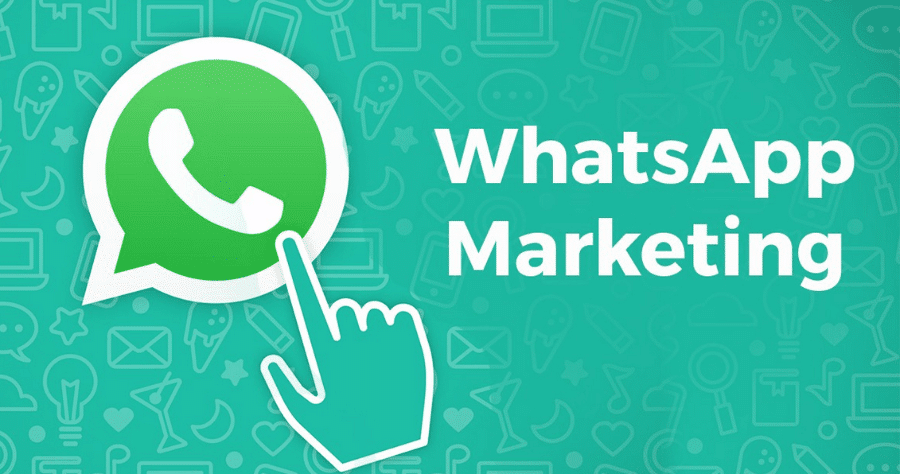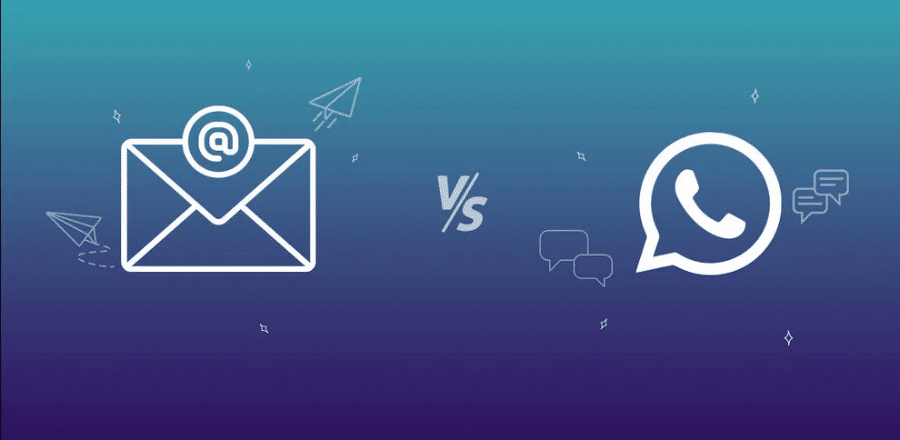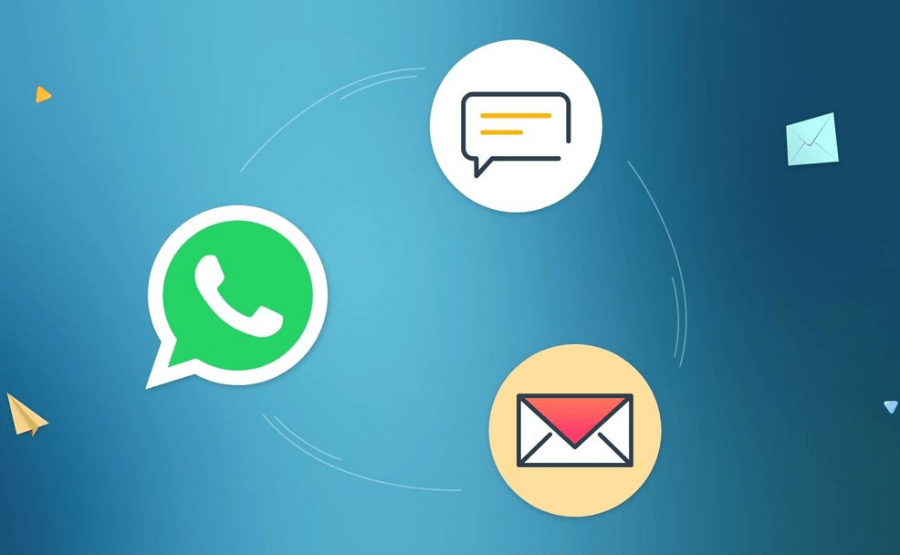📑 Table of Contents
- The Shift Towards WhatsApp Marketing
- Better Engagement Rates: A Key Factor
- Customization and Versatility
- Advanced Marketing Features with WhatsApp Business API
- Varied Messaging Capabilities
- 24/7 Customer Support with Chatbots
- Secure Payment Integration
- WhatsApp as a Super App: Managing the Complete Customer Journey
- The Advantages of WhatsApp Over Traditional Marketing Channels
- Final Verdict
In the fast-evolving digital marketing landscape, businesses constantly seek the most effective ways to connect with their target audience. As customer engagement patterns shift, companies must adopt new tools and technologies to ensure they meet consumers where they are most active, meaning companies are now choosing WhatsApp over SMS & email.
In this regard, WhatsApp has emerged as a powerful marketing tool, slowly eclipsing traditional methods like SMS and email marketing. The platform offers unique advantages, making it a favorite for businesses looking to improve customer interaction, drive engagement, and create personalized experiences.
This article delves into why brands increasingly turn to WhatsApp, highlighting how it stands out from traditional marketing methods like SMS and email.
The Shift Towards WhatsApp Marketing
Businesses today need marketing tools that keep up with their audience’s preferences. As the world becomes more connected, consumers expect brands to communicate with them on platforms they use frequently. With its massive global user base, WhatsApp is quickly becoming the go-to channel for businesses aiming to establish deeper, more personalized connections with their customers.
According to recent studies, WhatsApp boasts over 2 billion active users globally, making it one of the most popular communication platforms in the world. This widespread adoption has encouraged businesses to leverage WhatsApp as a direct line of communication with their customers, replacing or complementing traditional marketing channels like SMS and email.
While email and SMS marketing still have their place, they are increasingly viewed as limited, impersonal, and less effective in the current digital environment. Let’s explore why WhatsApp quickly becomes the preferred business communication and marketing platform.
Better Engagement Rates: A Key Factor
One of the most compelling reasons brands shift to WhatsApp is the platform’s superior engagement rate. Marketing through WhatsApp has consistently demonstrated higher open rates and user interaction compared to traditional email and SMS.
A staggering 72% of new users are likelier to engage with marketing messages sent via WhatsApp than those received through email or SMS. The high engagement rates can be attributed to several factors, including WhatsApp messages feeling more personal and less intrusive than emails and texts. Unlike emails that often go unopened or in spam folders, WhatsApp messages are more likely to be read as they land directly in users’ chats, an intimate and frequently used space.
Meanwhile, traditional email marketing has steadily declined, with open rates averaging around 20%. Although it still maintains some relevance, SMS suffers from similar engagement struggles. The primary issue with both email and SMS is their impersonal nature. Customers are becoming more selective about their content, and generic, highly promotional messages tend to get ignored or deleted.
In contrast, WhatsApp allows brands to foster a sense of personal connection by delivering conversational, relevant, and timely messages. This approach to marketing makes WhatsApp a far more engaging platform than its traditional counterparts.
Customization and Versatility
Another reason WhatsApp is becoming the marketing tool of choice is its versatility and ability to customize interactions. With a user interface designed for personal communication, WhatsApp offers businesses an opportunity to craft messages that feel personalized and tailored to the individual.
WhatsApp’s end-to-end encryption and intuitive UX make it an attractive platform for personal use and businesses. Marketers can use the platform to deliver a variety of content formats, such as text, images, videos, PDFs, and even voice messages. This multimedia capability allows businesses to create more dynamic and engaging campaigns.
For example, a brand can send a promotional video or a personalized message directly addressing the recipient by name, making the interaction feel much more intimate than a traditional email blast. By leveraging WhatsApp’s customization features, businesses can deliver more relevant and timely content, which helps build stronger relationships with customers.
Advanced Marketing Features with WhatsApp Business API

WhatsApp offers more than a simple messaging platform—it also provides a suite of advanced tools specifically designed for businesses. Companies can automate and streamline their marketing efforts through the WhatsApp Business API.
The API allows brands to:
- Broadcast messages to an unlimited number of users.
- Use chatbots to automate responses and offer 24/7 customer support.
- Integrate with CRM systems to manage customer relationships more efficiently.
This level of functionality makes WhatsApp a far more powerful marketing tool than email or SMS, which lack similar capabilities. With chatbots, for example, businesses can engage customers in real-time, providing instant support and answers to queries—which is impossible to achieve with email or SMS alone.
Moreover, companies can use the WhatsApp Business API to integrate the platform with their sales and marketing systems, ensuring a seamless data flow between customer touchpoints. This helps businesses create more cohesive, omnichannel marketing strategies that drive customer engagement across multiple platforms.
Varied Messaging Capabilities
One of WhatsApp’s standout features is its ability to send various message types. Businesses can send everything from media-rich messages to carousel ads, enabling them to engage customers uniquely and creatively.
For instance, a company could send a potential customer a carousel of products, followed by a limited-time offer customized for that individual based on their browsing behavior. This type of targeted messaging is far more effective at driving conversions than generic promotional emails or SMS blasts.
In addition to product carousels, WhatsApp allows businesses to send time-bound offers, multimedia messages, and security authentication messages, all of which can help guide a lead through the sales funnel and turn them into repeat buyers.
24/7 Customer Support with Chatbots
Customer service has become a crucial part of the marketing strategy, and WhatsApp’s ability to support round-the-clock chatbot communication gives it a significant edge over traditional channels.
With WhatsApp, businesses can create customized chatbots that handle everything from answering common queries to processing transactions. These chatbots can be set up to provide instant, personalized responses, ensuring that customers receive the help they need in real time. This continuous availability enhances the customer experience and makes WhatsApp a more versatile tool for businesses that need support outside of normal business hours.
Features like WhatsApp forms and reviews make interactions even more immersive. They allow brands to collect customer data and provide tailored content directly through the chat interface.
Secure Payment Integration
One of WhatsApp’s most revolutionary features is its WhatsApp Payments functionality, which allows customers to complete secure transactions within the app. The integration of payment gateways, such as UPI, credit cards, debit cards, and net banking, has made it easy for businesses to accept payments safely and conveniently.
This feature is already being utilized by major organizations such as DMRC and DTC to book metro and bus tickets, proving that WhatsApp is not just a marketing platform but also a functional tool for end-to-end customer interaction.
WhatsApp as a Super App: Managing the Complete Customer Journey
Given its wide range of functionalities, WhatsApp is well on its way to becoming a super app. This platform can handle everything from customer acquisition to onboarding, engagement, and retention. By providing businesses with tools to manage the entire customer journey within a single app, WhatsApp simplifies processes and improves the overall customer experience.
The Advantages of WhatsApp Over Traditional Marketing Channels

When compared with email and SMS, WhatsApp offers a range of benefits that make it the preferred choice for modern businesses:
- Higher Deliverability: Unlike many emails, WhatsApp messages aren’t in spam folders.
- Increased Engagement: With a 45-60% click-through rate on WhatsApp, engagement surpasses the 2-10% CTR in traditional marketing methods.
- Click-to-WhatsApp Ads: Unique advertising options, such as “Click to WhatsApp” ads on platforms like Facebook and Instagram, give businesses direct communication channels with potential customers.
- Advanced Tracking: WhatsApp allows for easy tracking of message delivery and read receipts, something traditional email and SMS channels don’t offer.
- Payment Capabilities: WhatsApp’s integrated payment system allows businesses to collect payments directly within the app, streamlining the customer journey.
- Verified Accounts: Businesses can get a verified green tick on WhatsApp, building customer credibility and trust.
Final Verdict
WhatsApp has become a pivotal tool for businesses aiming to enhance customer communication and engagement. Its higher engagement rates, customization options, advanced marketing features, and secure payment capabilities make it an invaluable asset for businesses worldwide.
As WhatsApp continues to evolve, it is set to maintain its position as a leading platform for business communication, outperforming traditional email and SMS marketing methods.
In the coming years, WhatsApp’s ability to facilitate personalized, real-time communication will continue to draw more brands towards it, further establishing it as a global central hub for digital marketing strategies.
